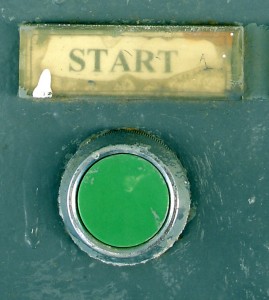 “You’re not good enough.”
“You’re not good enough.”
It’s difficult to step onto the stage of life, spread your arms wide, and say “Hello, world!” when you hear disparaging voices rumbling around in your head reciting the litany of your past “mistakes.”
Although we might be adroit at hiding it from others and even ourselves, that feeling of being “not good enough,” often rooted in childhood experiences, can still be alive and kicking in the subterranean world that rules so many of our thoughts and actions today.
The problem with that scenario is that if you classify yourself as “not good enough,” when will you give yourself permission to start fulfilling your dreams? When will you finally enjoy what life has to offer right now? When is it okay to stop judging yourself, your relationships, all the conditions of your life against that illusive target of perfection? And when will you finally come out of hiding?
The Paralyzing Propensity to Procrastinate
Many of us have been duped into believing that everything we do must measure up to the stiff standard of human perfection. For those of us who are perfectionists (I’m raising my hand), that’s a trap that can shut us down and shut us up. We procrastinate and ruminate, analyze and spin our wheels instead of taking the next step, any step, even if it’s a baby step.
The sages of both ancient and modern times take a much more balanced view. While they certainly encourage us to strive for excellence, they also emphasize that the goal of our life is not to live up to some unapproachable ideal of mechanical perfection. Human perfection is not the goal. Learning to express more of your true self is.
The beautiful ancient classic of India, the Bhagavad Gita, gives the following antidote for the paralyzing propensity of too much perfectionism and procrastination:
“Action is greater than inaction: perform therefore thy task in life. . . . Greater is thine own work, even if this be humble, than the work of another, even if this be great. . . And a man should not abandon his work, even if he cannot achieve it in full perfection; because in all work there may be imperfection, even as in all fire there is smoke.” (translation Juan Mascaro)
In other words, it’s better to do something rather than nothing. It’s better to put your time and energy into what you are called to do, deep inside. And it’s better to act now than wait for some future perfect time when your future perfect self is perfectly ready to perfectly execute the perfect project.
As a perfectionist myself, those wise words of the Bhagavad Gita are always a great inspiration (in fact, when I came across them again today they helped me get up the umph to write this post). They are a wonderful reminder to snap out of it and move forward.
You don’t have to be perfect to start giving your gifts. You just have to be you.
It’s time to get moving. Now.
For more inspiration and tips to snap out of the “not good enough” syndrome and embrace your passion, read my book Honor Yourself: The Inner Art of Giving and Receiving, especially the chapters in Part 4.
SHARE YOUR THOUGHTS: What wakes you up when you’re stuck in procrastination or perfectionism? We’d love to hear…

 Better than bigger is the gift of the heart.
Better than bigger is the gift of the heart. 



